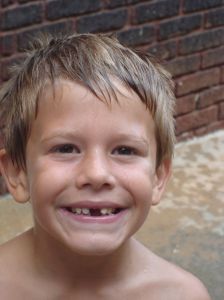 When adoptive parents first bring home their new family member time is required for everyone to settle in and the honeymoon to be over. Generally, the first several weeks after a child has been placed with their new family will go well with few difficulties depending on the age of the child. Toddlers appear to have a slightly more difficult time transitioning because of their lack of ability to understand what is happening or express what they are feeling. The honeymoon is generally shorter with a toddler.
When adoptive parents first bring home their new family member time is required for everyone to settle in and the honeymoon to be over. Generally, the first several weeks after a child has been placed with their new family will go well with few difficulties depending on the age of the child. Toddlers appear to have a slightly more difficult time transitioning because of their lack of ability to understand what is happening or express what they are feeling. The honeymoon is generally shorter with a toddler.
Adoptive parents may have a child placed who clearly may have attachment difficulties, just based on their case history. Children who were taken into foster care at an older age may have emotional difficulties based on trauma or in the loss and grief of being separated from their biological parents. When adoptive parents understand a child being placed has several risk factors for attachment disorders the parents can watch for opportunities to promote attachment, and symptoms that an attachment disorder may be present. Older children may have longer honeymoon periods.
A child who is at risk for one of the three primary attachment disorder categories may need extra help joining their new family and developing healthy attachments.
- The non-attached child will need re-parenting. It isn’t possible to re-do a childhood, or learn a developmental skill as well at an older age as it is at the correct time, but it is possible to fill in some gaps. Re-parenting means teaching the child the need-nurture cycle and parents may be over responsive for a period of time.
- An Inadequately Attached child has a little less make-up work needing to be done. For this child the most important thing is consistency and patience in the face of the after honeymoon testing.
- A Traumatized child needs nearly constant reassurance about his or her safety. This child will likely need other therapy in order to gain a different perspective of their earlier trauma and skills to cope better.
![]() Special Needs and Adoption-Related Terms:
Special Needs and Adoption-Related Terms:
A | B | C | D | E-F | G-H-I | J-K-L | M | N-O | P | Q-R | S | T-U-V-W-X-Y-Z
For more information about parenting special needs children you might want to visit the Families.com Special Needs Blog and the Mental Health Blog. Or visit my personal website.
Photo credit for this blog entry:  (no use restrictions for this photo)
(no use restrictions for this photo)

